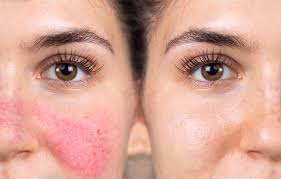When it comes to skincare, few ingredients are as celebrated and widely recognised as Vitamin C. Renowned for its brightening, anti-aging, and protective properties, Vitamin C has become a staple in the beauty industry. Questions I am often asked inclinic include: Why is Vitamin C so important for skin health, what are its benefits, and how it is best to incorporate it into a skincare routine for maximum effectiveness and do in-clinic treatments enhance its effects? When answering, I always emphasise it’s important to note that there are different forms of Vitamin C, with differences in solubility and benefits, and explain the advantages of addressing dietary intake as well as taking internal liposomal Vitamin C as support.
What is Vitamin C?
Vitamin C plays a crucial role in various bodily functions. It is an essential nutrient that the body cannot produce on its own, this means we must obtain it from our diet or topical applications. It is well-known for its role in boosting the immune system, but Vitamin C also has other powerful benefits that make it a superstar in skincare.
Different Forms of Vitamin C
Not all forms of vitamin C are created equal, and the overall efficacy of any vitamin C formula is graded on how well it converts to L-ascorbic acid once absorbed into the skin. To achieve this, delivery systems are key. For many years, L-Ascorbic Acid was considered the gold standard. This is a very unstable molecule and in order to penetrate into the skin, needs to be delivered at a very low pH, which can be irritating for some skins and has potential to disrupt the performance of other skin actives. This led to Vitamin C becoming available in various forms, which can be broadly categorised into water-soluble and oil-soluble options. I find that both oil-based and water-based vitamin C formulations can be beneficial for the skin, and the best option may depend on your skin type and concerns.
What are the benefits of Vitamin C?
One of the most celebrated benefits of Vitamin C is its ability to brighten the skin and promote a more even skin tone. It works by inhibiting melanin production (the pigment responsible for dark spots and hyperpigmentation) Regular use of bioavailable Vitamin C can help fade existing dark spots and prevent new ones from forming, resulting in a more luminous complexion.
Vitamin C is a potent antioxidant that helps combat free radicals, these are unstable molecules that can damage skin cells and accelerate aging. Environmental stressors like sun exposure, pollution, and smoke along with internal factors like stress and illness produce these free radicals, leading to oxidative stress. By neutralising these harmful molecules, Vitamin C helps protect the skin from premature aging
Collagen is the most abundant protein in the body, making up about 30% of the body’s total protein. It’s a primary building block of the body’s skin, muscles, bones, tendons, ligaments, and other connective tissues and simply put, without vitamin C, our skin can’t make collagen! Let’s jump into some science here!
- Vitamin C is directly responsible for collagen production by stabilising a special molecule in our cells called procollagen mRNA. When vitamin C and procollagen mRNA interact, collagen can be produced.
- Vitamin C also acts as an essential cofactor for 2 enzymes (prolyl hydroxylase and lysyl hydroxylase) which are fundamental to collagen synthesis.
- In addition to fulfilling this active role, vitamin C simultaneously plays a passive role in protecting our skin against collagen breakdown. Vitamin C silences the natural chemical enzyme called MMP1 in our skin that destroys collagen.
Vitamin C also possesses anti-inflammatory properties that can help soothe irritated skin. The appropriate forms can be beneficial for individuals with conditions like acne, rosacea, or sensitive skin. By reducing inflammation, Vitamin C can promote a healthier complexion and help calm redness and irritation.
While Vitamin C is definitely not a substitute for sunscreen, it can enhance your skin’s defence against UV damage. It helps to repair and regenerate skin cells damaged by sun exposure. When applied topically, Vitamin C can reduce the severity of sunburn and minimise the long-term effects of sun damage, such as dark spots and premature aging. It has also been shown to have a mild protecting effect against HEV (High Energy Visible) light, such as the blue light emitted from our devices.
How to Incorporate Vitamin C into Your Skincare Routine
To reap the benefits of Vitamin C, consistently incorporate it into your skincare routine:
Choose the Right Form of Vitamin C. If only applying once a day, I generally recommend applying in the morning, its antioxidant properties help protect your skin from free radicals throughout the day. But, as always at Curated Skin and Wellness – one size does not fit all, so I will definitely customise your application.
The Benefits of Internal Liposomal Vitamin C
In addition to topical applications, Vitamin C can also be taken internally, and one of the most effective forms for this purpose is liposomal Vitamin C. I choose to take, and recommend SuperDose (Poten-C) Vitamin C. Liposomal formulations encapsulate Vitamin C in tiny lipid spheres, because traditional Vitamin C supplements may not be well absorbed, leading to wastage. The liposomal delivery system allows for greater bioavailability, meaning more of the Vitamin C reaches the cells where it is needed.
Liposomal Vitamin C also provides a sustained release of Vitamin C into the bloodstream. This means that instead of experiencing a rapid spike in Vitamin C levels, the body receives a steady supply over time, leading to more consistent benefits.
Liposomal Vitamin C is generally better tolerated by those with a sensitive gut and less likely to cause digestive issues.
Taking Vitamin C internally can provide a range of health benefits beyond skin health. It supports the immune system, aids in wound healing, and contributes to overall cellular health.
Be conscious of your Vitamin C intake from fresh food by incorporating these foods (when in season) into your meals for a natural dose of this essential nutrient:
- Citrus Fruits: Oranges, grapefruits, lemons, and limes
- Berries: Strawberries, blueberries, and raspberries
- Kiwifruit: This small fruit packs a big Vitamin C punch.
- Capsicums: Red and yellow capsicums contain more Vitamin C than oranges.
- Broccoli and Brussels Sprouts: These vegetables are not only nutritious but also high in Vitamin C.
In-Clinic Treatments Featuring Vitamin C
In addition to at-home skincare, I offer several inclinic treatments that incorporate Vitamin C for enhanced benefits, including but not limited to.
Hot and Cold Vitamin C Infusion
My Hot/Cold Vitamin C infusion treatments deliver a concentrated dose of Vitamin C directly into the skin. These treatments can help brighten the complexion, reduce hyperpigmentation, and enhance overall skin texture.
Hydrafacial with Vitamin C
A non-invasive treatment that exfoliates the outer layer of dead skin cells. If suitable, I use Vitamin C after to enhance hydration and promote a radiant glow. This combination can leave your skin looking fresh and revitalised.
LED Light Therapy with Vitamin C
LED light therapy uses specific wavelengths of light to target various skin concerns. I combine this therapy with Vitamin C serums to enhance the treatment’s effectiveness, promoting collagen production and reducing signs of aging.
At Curated Skin and Wellness, I consider Vitamin C an essential ingredient in any skincare routine, as it offers so many benefits for achieving radiant, healthy skin. Whether through topical serums, liposomal supplements, dietary sources, professional treatments, or ideally a combination of all of these approaches—I can help you unlock the secret to vibrant, glowing skin.
Embrace the power of Vitamin C, and elevate your skin health.



